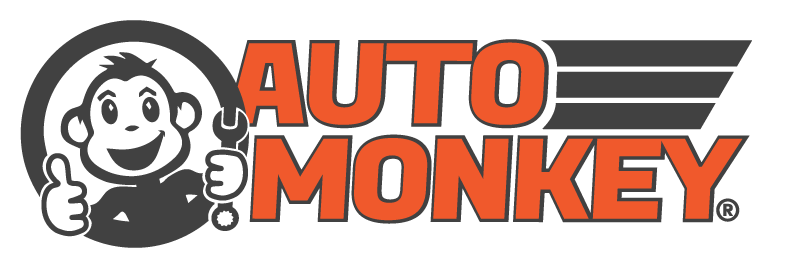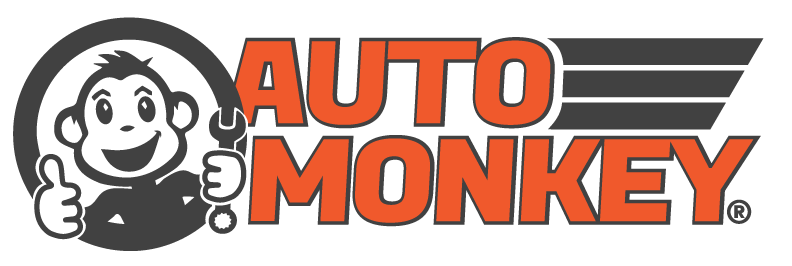WHEN TO REPLACE Brake ROTORS?
Knowing Is Half The Battle.
It's not uncommon for people to ask, when should I replace brake rotors? Largely, because there are some shops that won't allow you to replace your brakes without replacing your rotors too. And, their explanation never seems to sit right with the customer.
It is actually an industry standard to have your brakes rotors replaced at the same time you replace your brake pads. While some shops may not require it—it is always recommended. The reason why: new brake pads need fresh machined metal to properly "bed in" and create an optimal braking surface. There is an entire process that a new set of pads goes through with the paired brake rotors. This is why it's an industry standard, and why most shops recommend it and some require it.
Having said this, IF you do choose to do a simple "pad-slap", as some mechanics call it, it's important to know when to replace brake rotors. Follow these 3 signs to know when it's time.
1. THE SHIMMY AND SHAKE.
When braking while on the highway, or driving at speeds over 50 mph, and you apply the brake and feel your wheel shimmy or shake back and forth, this is a strong indicator that your rotors have become warped. You will also likely feel pulsing or similar in your brake pedal. Warped rotors still work, but understand your braking power is significantly reduced. This condition will only worsen with time. It's recommended getting your rotors and brake pads replaced as quickly as possible.
Warped rotors are caused from more aggressive driving habits. This means braking hard and/or quickly frequently. If you're one of those drivers that likes to drive closer to people and are constantly hitting the brakes to keep from ramming them...this is likely a cause of warped rotors. Another more example is driving fast on the freeways and then hitting the brakes when getting close to someone vs letting up on the gas prior to getting right behind them. This maneuver puts a great deal of stress and heat on the rotors—far more than simply slowing up and letting off the gas for a second while the cars in front of you start moving faster again. The extreme heat of the brake pads rubbing on the rotors combined with high pressure of hydraulic lines pressing into the metal rotors fatigues the metal and allows it to bend and warp.
2. ROTOR LIP.
You could be Driving Miss Daisy, and you'd still need to get your rotors replaced eventually, even if doing a quick brake pad replacement. The ceramic, or metal, brake pads wear down the rotors with use. It's not all brake dust. Some of it is micro-shavings from the metal on the rotors. With time, rotors will form a lip around the edge of the rotor. This can easily be felt by slipping your thumb or finger up and down the edge of the rotor. In extreme cases, you'll be able to see it.
When there's a lip of any kind, the rotor should be replaced. The reason is, if the new pad is even slightly larger or sits differently than the old, it can ride on that lip and you won't get the proper surface friction on the rotor. This, again, reduces your braking power.
3. GROOVES AND SCRAPES.
If you allow your brakes to go too long before changing them, you might start hearing a little squealing then you'll start hearing hard scraping when you brake. The squeal is an early warning sound that your brakes are about done. BUT, if you hear scrapping you've missed you window to replace your brakes without ruining your rotors. The scrapping noise is a result of the brake pad wearing out all the way, and you're left with the hard metal plate the pad was attached to grinding on the rotor. When this happens grooves are left in the rotor. This leaves an uneven and unsmooth surface for future brake pads to press against diminishing your braking power.
Please Note: It is always best practice to replace your rotors with each brake job so that your brakes and rotors seat properly. If you opt to replace your brakes without replacing your rotors, this voids brake warranties against noise and drivability.
3. GROOVES AND SCRAPES.
If you allow your brakes to go too long before changing them, you might start hearing a little squealing then you'll start hearing hard scraping when you brake. The squeal is an early warning sound that your brakes are about done. BUT, if you hear scrapping you've missed you window to replace your brakes without ruining your rotors. The scrapping noise is a result of the brake pad wearing out all the way, and you're left with the hard metal plate the pad was attached to grinding on the rotor. When this happens grooves are left in the rotor. This leaves an uneven and unsmooth surface for future brake pads to press against diminishing your braking power.
Please Note: It is always best practice to replace your rotors with each brake job so that your brakes and rotors seat properly. If you opt to replace your brakes without replacing your rotors, this voids brake warranties against noise and drivability.

